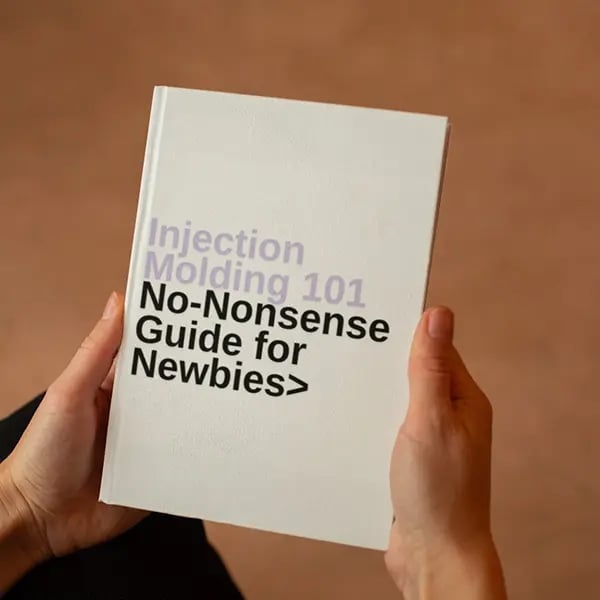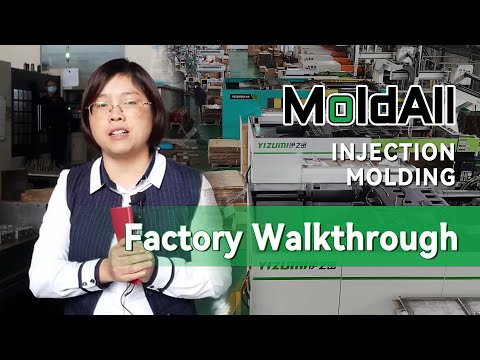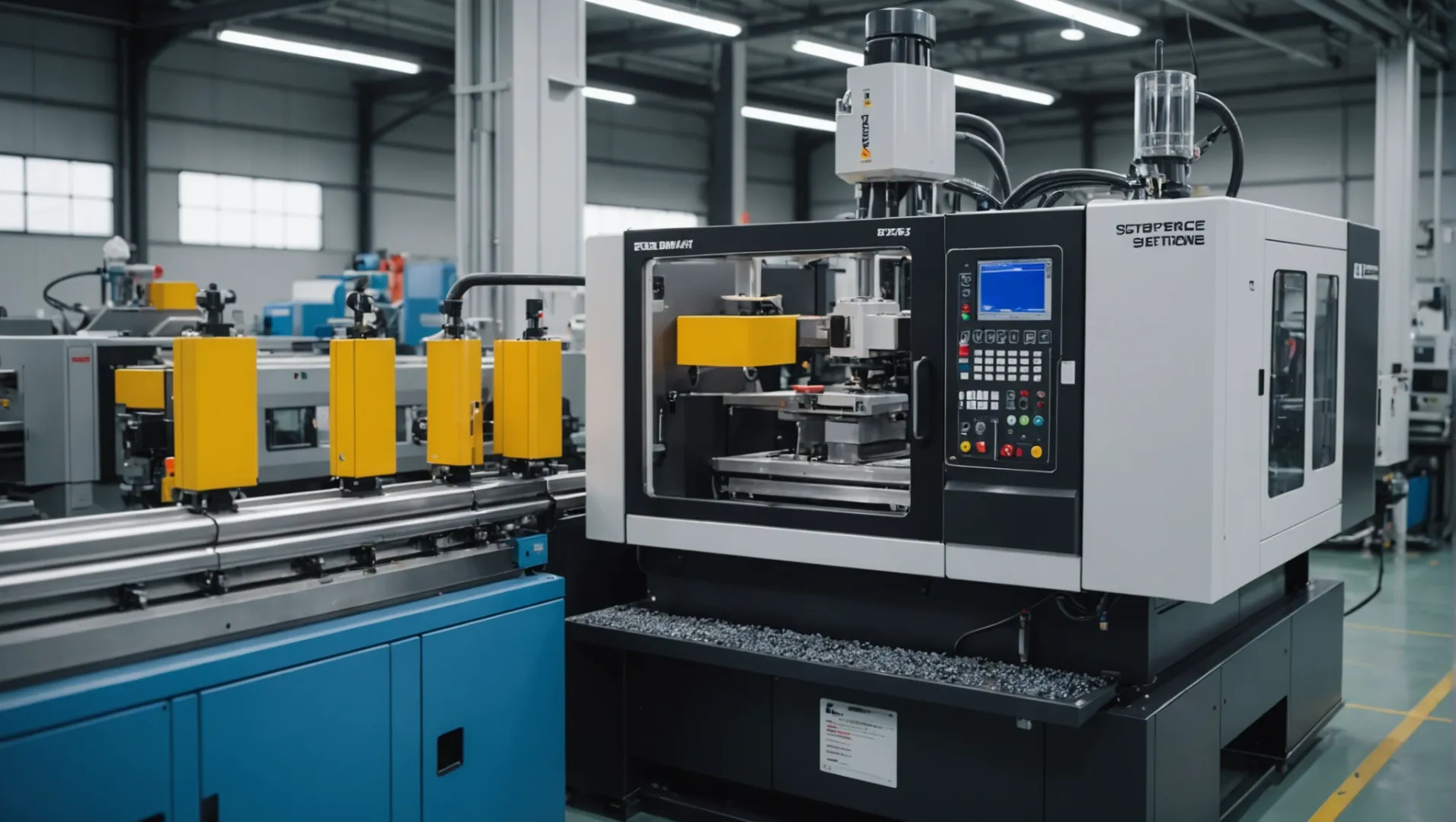
Ever wondered how those colorful products come to life? Multi-color injection molding is changing the game in manufacturing.
Multi-color injection molding involves injecting different colored or material plastics into a mold sequentially using specialized molds and control systems, enabling the creation of visually appealing and functional products.
But there’s so much more to this process! Let’s dive deeper into the mechanics and marvels of multi-color injection molding.
Multi-color injection molding enhances product aesthetics.True
This process integrates multiple colors, improving product appearance.
- 1. What Are the Technical Principles Behind Multi-Color Injection Moulding?
- 2. How Does Multi-Color Injection Moulding Improve Production Efficiency?
- 3. In Which Industries Is Multi-Color Injection Moulding Most Beneficial?
- 4. What Challenges Are Associated with Multi-Color Injection Moulding?
- 5. Conclusion
What Are the Technical Principles Behind Multi-Color Injection Moulding?
Unveiling the secrets behind multi-color injection molding can reveal how it reshapes product design with its technical brilliance.
Multi-color injection molding involves injecting different colored or material plastics into a mold sequentially using specialized molds and control systems, enabling the creation of visually appealing and functional products.

Multi-Color Injection Molding
Technical Principle of Multi-Color Injection Moulding
At the heart of multi-color injection molding1 lies an intricate process that orchestrates the seamless integration of various colors or materials within a single mold. This method involves using a specialized injection molding machine capable of handling multiple injection units. Each unit injects a different color or type of plastic into the mold cavity in a specific sequence. The synchronization and precision required in this process are achieved through advanced control systems.
-
Injection Sequence: The process begins by injecting the primary material to form the base structure. Subsequently, secondary materials are injected in a carefully controlled sequence to add layers or sections of different colors or materials.
-
Mold Design: A critical component is the mold itself, which is designed to accommodate multiple injections while maintaining structural integrity and precision. The mold must be engineered with channels and gates that allow for even distribution of each material.
-
Control Systems: To ensure accuracy, control systems manage the temperature, pressure, and timing of each injection. These systems are crucial for maintaining the consistency and quality of the final product.
Main Features of Multi-Color Injection Moulding
Rich Colors
The ability to combine multiple colors in a single product enhances its aesthetic appeal. Whether for consumer electronics or automotive components, this feature adds significant value by creating visually striking designs.
Diverse Materials
Multi-color injection molding is not limited to color variation; it also allows for combining different types of plastics, such as hard and soft plastics, within one product. This capability extends the functionality and tactile experience of products, like in toothbrush design2.
High Production Efficiency
This process consolidates various production steps, as multiple material injections occur within the same cycle. This efficiency reduces production time and costs, making it a preferred choice for mass manufacturing.
High Precision
Precision is paramount in multi-color injection molding, where even slight deviations can affect the end product. Advanced mold design and control systems enable high-precision manufacturing, ensuring consistent product quality.
The technical principles behind multi-color injection molding highlight its potential to revolutionize manufacturing by enhancing both aesthetic and functional aspects of products.
Multi-color injection molding uses a single injection unit.False
It uses multiple injection units to handle different colors or materials.
Control systems in multi-color molding manage pressure and timing.True
These systems ensure precision by managing temperature, pressure, and timing.
How Does Multi-Color Injection Moulding Improve Production Efficiency?
In the fast-paced world of manufacturing, efficiency is key. Multi-color injection molding emerges as a game-changer, enhancing production speed and quality.
Multi-color injection molding enhances production efficiency by integrating multiple colors or materials into a single molding process. This reduces assembly steps, shortens production cycles, and minimizes equipment usage, leading to faster output and cost savings.
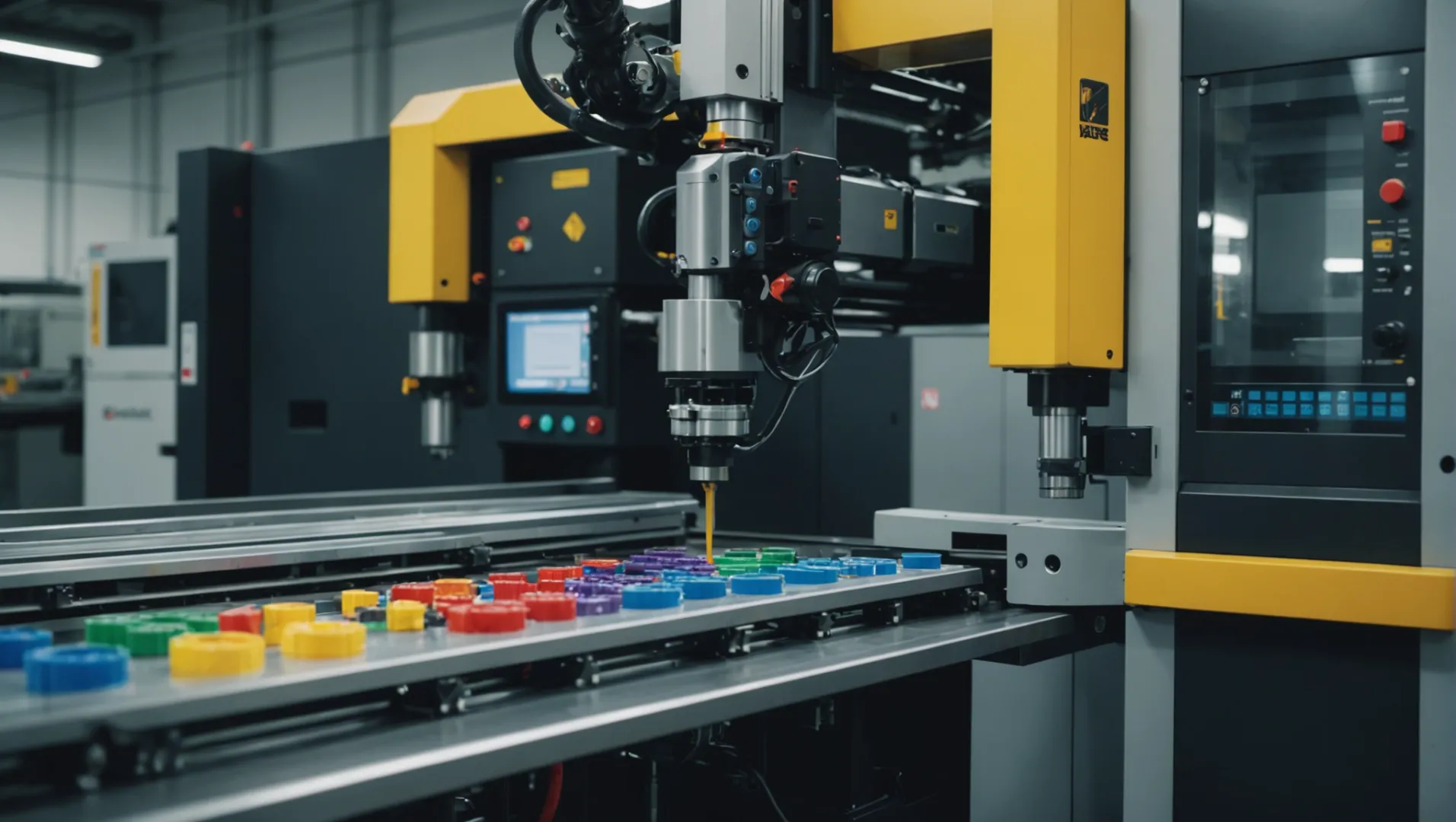
Integrating Colors and Materials in One Step
At the heart of multi-color injection molding3 is its ability to combine different colors or materials within a single process cycle. This integration eliminates the need for separate production stages, such as painting or assembling different components, which traditionally extend manufacturing timelines and increase costs.
By utilizing a special injection mold and control system, manufacturers can inject different plastic materials into the mold cavity sequentially. This creates products with diverse colors and functionalities without interrupting the manufacturing flow, significantly boosting productivity.
Reducing Equipment and Space Requirements
One of the standout features of multi-color injection molding is its compact use of equipment. Unlike traditional methods that require multiple machines for different production stages, this advanced technique allows for everything to occur on one injection molding machine.
This consolidation not only reduces the physical space needed for machinery but also decreases energy consumption, aligning with sustainable production practices. The fewer machines involved, the lower the maintenance costs and downtime, ultimately improving the bottom line.
Achieving High Precision and Quality
With precise mold design and cutting-edge control systems, multi-color injection molding4 delivers high-precision products. Accurate color and material placement within each mold ensures consistent quality across batches.
High precision reduces material wastage and the need for post-production adjustments, further accelerating the production process and ensuring timely delivery of high-quality products.
Impact Across Industries
Industries from electronics to automotive are leveraging multi-color injection molding to enhance efficiency. For instance, in electronics, seamless integration of different colors in mobile phone cases or computer peripherals eliminates additional finishing processes.
In the automotive sector, combining different materials in dashboard components or interior trims meets aesthetic and functional demands without extra assembly steps. This approach not only boosts production speed but also enhances the product’s market appeal.
Multi-color injection molding reduces production cycle time.True
It integrates multiple colors or materials in one step, speeding up production.
Multi-color injection molding increases equipment usage.False
It minimizes equipment usage by consolidating processes into one machine.
In Which Industries Is Multi-Color Injection Moulding Most Beneficial?
Multi-color injection molding is revolutionizing several industries by enabling the production of visually appealing and functional products. But which sectors benefit the most from this technology?
Industries such as electronics, automotive, toys, and daily goods benefit significantly from multi-color injection molding due to its ability to enhance product aesthetics, functionality, and efficiency. This technology supports the creation of visually distinct and high-performance products, elevating market competitiveness.

Electronics Industry
In the electronics sector, multi-color injection molding is invaluable for creating aesthetically pleasing products with a premium feel. Items such as mobile phone cases, keyboards, and mice gain unique appearances through this technology. The ability to seamlessly integrate various colors and materials not only enhances the visual appeal5 but also contributes to user experience by providing different tactile sensations.
Automotive Industry
The automotive sector leverages multi-color injection molding to meet stringent demands for both functionality and style. Car dashboards, interior trims, and bumpers often utilize this process to combine diverse colors and materials, achieving enhanced performance and design. Such combinations are crucial in delivering on-brand aesthetics while maintaining the durability and safety standards required in automotive components.
Toy Manufacturing
Toy manufacturers have found multi-color injection molding to be a game-changer in producing vibrant and captivating toys. The method allows for creative designs with bright colors and complex shapes, which are not only attractive to children but also safe. The integration of different materials can make toys more interactive and enjoyable, providing additional play value6.
Consumer Goods
Daily necessities such as toothbrushes, cups, and tableware are also beneficiaries of multi-color injection molding. This technology allows these everyday items to be more visually appealing and functional. For instance, a toothbrush can have a sturdy handle with a soft grip, thanks to the ability to combine hard and soft plastics effectively.
| Industry | Application Examples | Key Benefits |
|---|---|---|
| Electronics | Phone cases, mice, keyboards | Enhanced aesthetics, user experience |
| Automotive | Dashboards, bumpers, interior parts | Improved functionality, design versatility |
| Toys | Brightly colored, shaped toys | Increased attractiveness, interactive features |
| Consumer Goods | Toothbrushes, tableware | Aesthetic appeal, practical functionality |
The widespread adoption of multi-color injection molding across these industries demonstrates its transformative impact on product design and manufacturing capabilities.
Multi-color injection molding improves automotive safety.True
It allows combining materials that enhance durability and safety.
Toy manufacturers avoid using multi-color injection molding.False
They use it extensively for vibrant, interactive designs.
What Challenges Are Associated with Multi-Color Injection Moulding?
Multi-color injection moulding is a marvel of modern manufacturing, but it isn’t without its challenges. What obstacles do manufacturers face?
The challenges of multi-color injection moulding include complex machinery requirements, precise control system demands, increased production costs, and potential material compatibility issues.
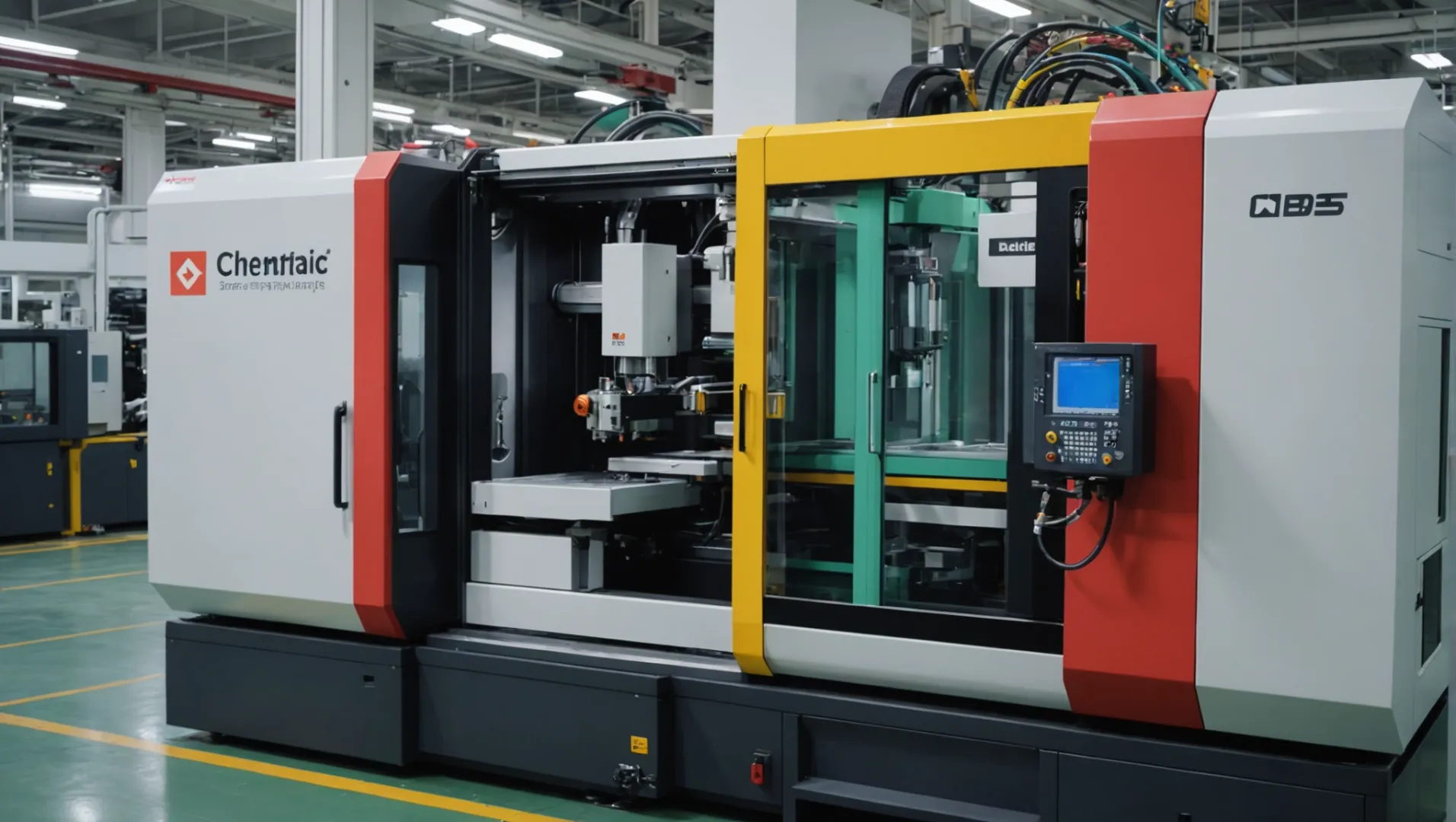
Technical Complexity
Multi-color injection moulding necessitates sophisticated equipment capable of handling various materials and colors. This machinery often requires precise programming to ensure that each color is injected at the correct time and location within the mold. Achieving this level of accuracy demands a highly skilled workforce7 and meticulous attention to detail, making the process both technically demanding and expensive.
Control System Precision
The control system plays a pivotal role in multi-color injection moulding. It must synchronize the injection of multiple materials or colors with exact timing to avoid defects such as uneven color distribution or improper bonding between materials. Any deviation in the system can lead to inconsistencies in the final product, necessitating rigorous maintenance and calibration.
Cost Implications
Implementing multi-color injection moulding can lead to increased production costs. The need for specialized machinery and skilled operators raises initial setup expenses. Additionally, because the process can be more time-consuming than single-color moulding, production throughput may decrease. Companies must weigh these costs against the benefits of enhanced product aesthetics and functionality.
Material Compatibility
Combining different materials or colors in a single product introduces potential compatibility issues. Not all plastics mix well, and variations in melting points or bonding characteristics can lead to weak spots or separation in the finished product. Manufacturers must carefully select materials that work harmoniously together to ensure product durability and performance.
Industry-Specific Challenges
In sectors such as automotive manufacturing8 or consumer electronics, where precision and quality are paramount, any fault in multi-color injection moulding could lead to costly recalls or reputational damage. Therefore, industries relying heavily on this technology must implement stringent quality control measures and continuous training for their workforce to mitigate these risks.
Despite these challenges, the benefits of multi-color injection moulding often justify its complexities. However, understanding these hurdles is crucial for manufacturers looking to leverage this innovative technique effectively.
Multi-color injection moulding requires precise control systems.True
Precise control systems ensure correct timing and color placement.
Material compatibility is not a concern in multi-color moulding.False
Different materials may have incompatible properties, causing issues.
Conclusion
In conclusion, multi-color injection molding not only enhances product design but also boosts production efficiency across various industries. Embrace this technology to unlock new possibilities for your products.
-
Discover the detailed technical workings behind multi-color injection molding.: Two-color injection molding technology allows products to be rendered in a variety of colors and textures without the need for additional … ↩
-
Explore how this technology enhances everyday products like toothbrushes.: Most two-color toothbrush handles are made of plastic injection molds with rotating cores. The rotating core process means that the two-color plastic injection … ↩
-
Explore the detailed process and benefits of multi-color injection molding.: Multi-component injectoin molding is also named as the multi color injection molding process, refering to the mateiral that has two kinds of color or more than … ↩
-
Discover how precision in multi-color molding enhances production quality.: What are the advantages of injection molding? · 1. Efficient high production · 2. Low cost per part · 3. Repeatability · 4. Large material choice · 5 … ↩
-
Explore how it improves aesthetics and user experience in electronics.: Two-color injection molding can be an effective way to create aesthetic or functional effects that cannot be achieved with a single color. To … ↩
-
Discover how this method increases toys’ attractiveness and play value.: In summary, plastic injection molding offers an efficient, economical, precise, and versatile method of toy production. These advantages make injection molding … ↩
-
Explores why skilled workers are vital for precise multi-color molding.: Here are 5 ways you can get your team speaking the same language and eliminate some of the pains of the injection molding skills gap. ↩
-
Learn how the automotive sector manages molding complexities.: The key to molding good parts is for OEMs to decide, very early on, that a part will be colored with molded-in color masterbatch; that decision will then … ↩



